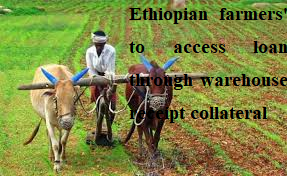
Certainly! Ethiopia is a country with immense tourism potential and a rich cultural heritage. Its diverse festivities play a significant role in attracting tourists and contributing to economic development. There are so many key points to be mentioned about the Ethiopian tourism potential and the contribution of diverse festivities. Most of all, historical and cultural attractions are grabbing the interest of tourists.
Ethiopia is known for its ancient historical sites and cultural treasures. The country is home to numerous UNESCO World Heritage Sites, including Lalibela, Axum, Gondar, and the rock-hewn churches of Tigray. These attractions draw tourists interested in exploring the country’s unique history and architecture.
By the same token, natural beauty is the other manifestation for the country. Ethiopia boasts breathtaking landscapes and natural wonders. The Simien Mountains, Danakil Depression, Blue Nile Falls, and the Rift Valley Lakes are just a few examples of Ethiopia’s natural beauty. Tourists can engage in activities like trekking, bird watching, and wildlife spotting, attracting nature enthusiasts from around the world.
On the other hand, unique festivals are serving as magnetic tourism factor and appeared to be lucrative income and peaceful coexistence for the country. Ethiopia has a diverse range of cultural and religious festivals throughout the year. Enkutatash, Ethiopia’s New Year is celebrated on 11th September or 12th during leap years; Meskel, the colorful outdoor festival observed by Christians that attracts tourists from all over the world; and the Oromo thanksgiving festival, Irreecha are among the intangible heritages of Ethiopia.
One of the most famous is Timkat, the Ethiopian Orthodox celebration of Epiphany. The festival involves colorful processions, music, dancing, and the reenactment of baptismal ceremonies. These and other celebrations provide a glimpse into Ethiopia’s vibrant cultural heritage and traditions.
Apart from promoting the counties’ ancient civilization, the economic impact of tourism has enormous merits for the country. The tourism sector in Ethiopia has significant economic potential. By promoting tourism and attracting visitors, the country can generate revenue, create job opportunities, and stimulate local businesses. Tourists spend money on accommodations, transportation, food, souvenirs, and various services, all of which contribute to the local economy.
Furthermore, employment and entrepreneurship is the other area reinforced by tourism development. The growth of tourism in Ethiopia can lead to increased employment opportunities. The sector requires a wide range of skills, including hospitality, tour guiding, transportation, and craft making. Additionally, tourism can encourage entrepreneurial activities, such as the establishment of hotels, restaurants, tour agencies, and handicraft businesses.
Community developments ushered by tourism can have a positive impact on local communities. As tourism grows, it creates demand for goods and services, encouraging the development of infrastructure, healthcare facilities, and educational institutions. Moreover, community-based tourism initiatives can empower local communities, preserve cultural heritages, and provide sustainable livelihoods.
Beyond these, international image building and investment attraction can be achieved through efficient tourism. A thriving tourism industry enhances the country’s international image and attracts foreign investment. Positive experiences shared by tourists can lead to increased interest from potential investors, encouraging economic growth in other sectors beyond tourism.
According to the Addis Ababa City Administration Culture, Arts and Tourism Bureau, a plan is in place to channel approximately 86.99 billion Birr into the capital’s economy from domestic and foreign tourists in the current fiscal year. This includes 42.59 billion Birr from foreign tourists and 44.4 billion Birr from domestic tourists. These funds will contribute to the economic growth of the capital and provide opportunities for employment and entrepreneurship in the tourism, arts, and culture sectors.
By implementing a strategic approach to tourism development and leveraging the unique cultural heritage and festivities, Ethiopia can position itself as a top tourist destination in Africa and the world, leading to economic prosperity, cultural preservation, and enhanced international recognition.
Again, the government has to put in place the factors to up line the country’s tourism and be able to one of the hub of tourism in the world since the country is The Land of Origin and heterogeneity, according to tourism documents.
Investing on improving transportation infrastructure; including airports, roads, and railways is among the key factors to enhance accessibility within the country. This will make it easier for tourists to travel between different destinations and regions in Ethiopia. Additionally, ensuring the availability of quality accommodations and tourist facilities in key locations is equally essential.
Launching effective marketing campaigns to raise awareness about Ethiopia as a tourist destination serves as a bloodline to the nation’s economy. Using various channels, including social media, travel websites, and international tourism fairs, to showcase the country’s unique attractions, cultural heritage, and diverse festivals is a noble activity in the sector. Collaborating with international travel agencies and tour operators to promote Ethiopia as a must-visit destination is a duty must not be put aside.
Establishing and expanding direct flight connections between major international cities and Ethiopia’s are among core facilities of tourism sector. This includes forging partnerships with international airlines and encouraging them to increase the frequency of flights to Ethiopian airports. This will facilitate easy access for international tourists and boost visitor numbers.
Emphasizing on sustainable tourism practices to preserve Ethiopia’s natural and cultural resources should be a habit to anyone engaged in the sector. Implementing guidelines for responsible tourism, including waste management, conservation of natural areas, and respect for local communities is as equally essential as promoting the sector. In line with this, encouraging eco-friendly accommodations and promoting community-based tourism initiatives enable to ensure the benefits of tourism reach local communities.
Since peace and security are preconditions for tourism, focusing on maintaining a safe and secure environment for tourists is a matter of preserving the sector secured. To this end, investing in training and equipping security personnel, especially in tourist areas ensure the safety of visitors. Collaboration with law enforcement agencies, local communities, and tourism stakeholders is a must to create a secure and welcoming environment for tourists.
Protecting and preserving Ethiopia’s cultural heritage sites, historical monuments, and artifacts is keeping the sector alive. There should also be implementing conservation measures to safeguard these treasures for future generations.
Exerting all the above mentioned efforts without investing in training programs to enhance the skills and professionalism of individuals working in the tourism industry will be in vain. Thus, providing training in hospitality, customer service, tour guiding and language proficiency is essential. This will improve the overall visitor experience and contribute to the growth of the tourism sector.
In order to create fertile ground to flourish the tourism sector, fostering collaboration among government agencies, local communities, private sector enterprises, and international organizations must be underlined. Establishing partnerships with international tourism bodies and seeking their support, enables promoting Ethiopia as a preferred tourist destination. This includes engagement with local communities to ensure their active participation and benefit-sharing in the tourism sector.
Offering attractive incentives and creating conducive investment climate to attract local and foreign investors in the tourism sector should be planned and applied. This may include Provision of tax breaks, streamlined administrative processes, and support for infrastructure development to encourage investment in hotels, resorts, tour agencies, and other tourism-related businesses.
Capitalizing on enhancing the overall visitor experience by providing quality services, cultural immersion opportunities, and unique tourism products add value to the sector. Developing specialized tour packages that showcase Ethiopia’s diverse attractions, festivals, and cultural experiences will make the tourists extend their stay here.
By implementing these strategies, Ethiopia can position itself as a leading tourist destination and a hub of internal peaceful mobility in Africa and the world. This will lead to economic growth, job creation, cultural preservation, and an enhanced international image for Ethiopia.
To fully realize Ethiopia’s tourism potential and leverage the diverse festivities, it is important to focus on infrastructure development, marketing campaigns, preservation of cultural heritages, and training programs to enhance the skills of those working in the tourism industry. By doing so, Ethiopia can harness the economic benefits of tourism while preserving its cultural identity
BY LAKACHEW ATINAFU
The Ethiopian Herald September 28/2023





